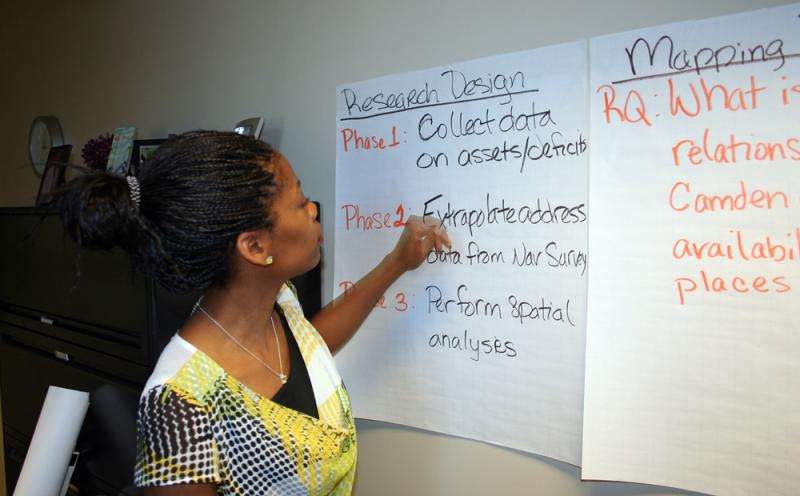Why do teens reject drugs? Communication is the key, says researcher

Why do teens reject the use of marijuana? According to a new study by researchers from Rutgers University–Camden and the University of Pennsylvania, there are several factors: attributes of their peer group, how they let their friends know who they are, and how they perceive and communicate about drug users.
"We were intrigued with these findings," says Stacia Gilliard-Matthews, an assistant professor of criminal justice in the Department of Sociology, Anthropology, and Criminal Justice at Rutgers University–Camden, who led the study, published in the Journal of Youth Studies. "Many of the adolescents in the study have peers who used drugs or had been in situations where drug use occurred. However, as we saw, they avoided use for several key reasons."
In the study, conducted between 2012 and 2014, 309 African-American and Hispanic 13- to 20-year-olds from Camden were either interviewed or surveyed about their risk-taking behavior.
According to Gilliard-Matthews, the researchers found that many adolescents actively engaged in demonstrating to their friends that they were a "good girl or guy" or that using drugs was "not a good look" for them. Consequently, they framed their concerns about the negative health consequences of drug use within how they perceived themselves and the image that they wanted to communicate to others about themselves. Additionally, personal experiences with drug users and stories about other peoples' drug-using experiences aided in adolescents' nonuse.
For example, notes the Rutgers–Camden researcher, one adolescent shared a story about how seeing a drug user get hit by a bus affected her nonuse.
"It occurred to her how drugs could lead an addict to a point in his or her life where a person could run in front of a bus," recounts Gilliard-Matthews, the lead researcher on the project. "She remarked that if drugs are that addictive, then you probably shouldn't want to do that."
Several other adolescents discussed how images of drug users were shared on social media. The researchers summate that peer communication about drug users is key to non-marijuana users, as they don't want to be the one whose image is shared on social media or talked about among their peers.
The researchers are interested in identifying factors that can be leveraged to eliminate risk-taking behaviors like marijuana use.
"Learning the important nuances of how adolescents communicate and what they communicate about is integral to future interventions," says Gilliard-Matthews, who notes that this is the first study to highlight how African-American and Hispanic adolescents living in the inner city draw upon "assets" in themselves and the environment to avoid marijuana use.
She says that the researchers plan to continue studying the experiences of these youth from an asset-based perspective, determining how they are able to remain resilient in the face of risk-taking situations.
"After all, most adolescents living in inner-city neighborhoods with multiple risk factors do not use drugs," says the Rutgers–Camden researcher. "Aside from these findings, previous research has focused solely on examining the experiences of adolescents living in the inner city from a deficit approach, such as indicators that attribute to drug use."
The study is the latest facet in an ongoing research project, titled "EPIC Camden," aimed at better understanding how African-American and Hispanic adolescents in Camden navigate sexual behavior, as well as drug and alcohol use, within the context of high-crime, high-poverty neighborhoods. The researchers seek to determine what pathways the adolescents take in their decision-making in order to devise strategies that will enable them to better deal with the risks that they are going to face.
More information: Stacia Gilliard-Matthews et al. 'If drugs does that to you, then I don't want it.' Resiliency among non-marijuana using adolescents, Journal of Youth Studies (2016). DOI: 10.1080/13676261.2016.1154934













